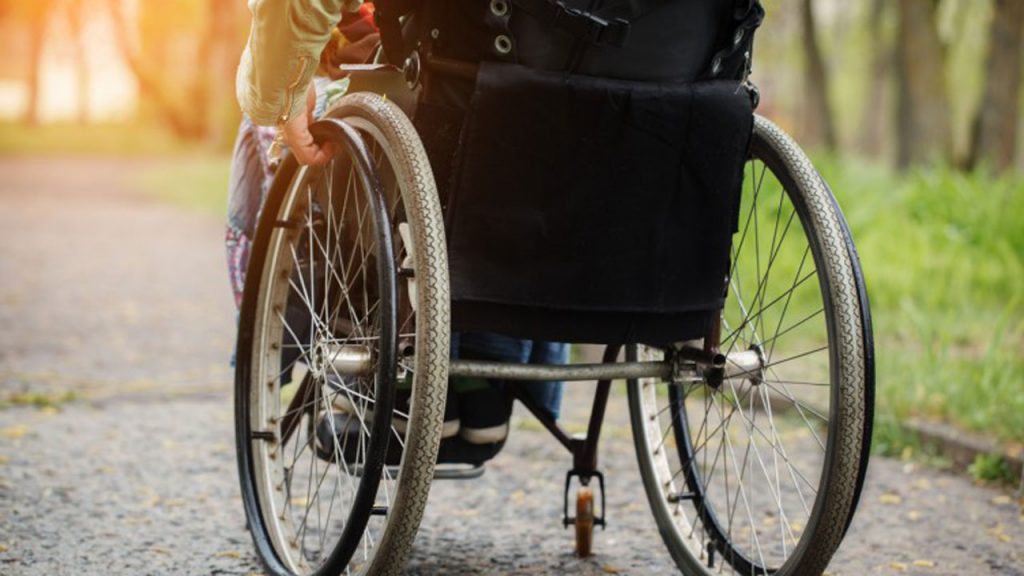Yesterday we looked at the challenges that persons with disabilities face . We got to appreciate that we as the larger community may not be doing enough to support these persons, more so the children to cope with the world in the best way possible. But I want to ask who advocates for the parents and guardians of persons living with disabilities who share this with their children on a daily basis?

It is very common for parents to cycle between one emotion to another, depending on the seriousness of the disability, their coping skills, and their support system. Some reactions we see that parents and or guardians of children living with disabilities go through include the following;
- Denial
Denial is refusing to acknowledge or accept that your child has a disability. This is usually the first reaction to finding out about one’s child’s disability or deformity. Every parent faced with this challenge will first blame themselves for their child’s disability. Some pregnant women even become very depressed about carrying a child with a disability and the thoughts of not giving birth to these children or allow the children to live increase. This, unfortunately, is where some doctors table the absurd option of abortion.
When a woman is in denial of carrying a child who is or may be deformed, she also carries with herself the other probability that the doctor who discovered the disability was wrong about their prognosis of the child. As the pregnancy progresses to term, she may even still be in denial of being pregnant with a child with a deformity or possibility of one until she gives birth, and the child exhibits the signs of deformity!
Some parents get stuck at this stage and there is only one person at a loss here: the child. However, if one finds themselves in this situation, the only way to go past this stage is to discover why they are finding such a hard time accepting the news and working through all the emotions. Eventually, hard as it may seem, sometimes times with the help of a counsellor, they come to terms with it, know that their child is struggling (or will) for a reason or a while, will struggle through some life’s activities; and then equip themselves with the best tools on how to react to the changes that will exhibit as the child grows.
- Anger
Anger and denial usually run side by side. Parents who receive the news of a deformity of their child become angry: always questioning why it had to be them. They blame themselves for not having done enough or not doing enough to guarantee a healthy life for their children. When the stress becomes too much, it boils into anger. This anger can be shown outwardly in form of rage or they become withdrawn because of the immense feelings of guilt and shame. Displacement of anger is one of the common occurrences we see among these parents. It expresses itself through verbal attacks on anyone who may blame the parents for their ‘unfortunate’ circumstance. It is very sad to note that during such a time, many marriages become strained and regrettably, some even result in divorce.
In as much as anger is normal and purely understandable as a way of acknowledging the injustice on your child, one should find some balance not to be carried away by this emotion. Instead, channel this emotion into advocacy for children living with disabilities’ rights, and becoming a motivation to other parents who are yet to face the same experience. Motivation should also be the source through which you become the number one advocate for your child. This may not happen naturally, however, but it does eventually. It may require you to join or form support groups.
- Fear
The Advanced Learner’s Dictionary defines fear as an unpleasant emotion caused by the threat of danger, pain or harm. Among parents of children living with disabilities, the biggest fear arises from the uncertainty of what to expect in future as their children grow. The anxiety of how to protect one’s child who may not easily protect himself or herself sets in. It burdens a parent to know that they are their child’s only defense and protection and when they are away from the child, despite the child having grown into an adult, the child will be vulnerable to attack, mockery, ridicule and difficulty in living. Parents will imagine society’s rejections towards their children and the fear may yield them health problems, thus shortening their own lifespans.
This stage comes along with bargain. Parents begin the unending journey of hoping that perhaps they will find a permanent cure for their child(ren) and return normalcy to the family. They often involve prayer or any higher power seeking for some miracle. “Just let my child be like other children and I will do everything you want”, is an example of what that prayer may look like.
Recognising the special ability that your child has is one of the best ways to calm your fears: because, beyond the therapies and endless hospital check-ins, there is a something special in your differently abled child.
- Grief
There is such a tremendous sense of loss that parents encounter when they learn of their children’s disability. This feeling is normal. When parents learn of such news about their child, they almost give up all those dreams they had for their child and this is so heartbreaking. Just like the rest of the emotions above, grief is another form of emotion that parents have to allow themselves to go through. It is best overcome when one gets a support group to journey with.
- Guilt and depression
This is another emotion that I hinted on in the beginning, which parents feel and will feel in life throughout the child’s life. This, however, falls more on the mothers who often feel guilty about some wrongdoing they did for their child to be born that way. The blame on oneself can be so grave that it leads to depression.
Taking about depression, parents face continuous challenges ranging from social isolation, financial strain, outright exhaustion, difficulty in finding resources, feelings of confusion, etc. Over time, if these feelings remain and the person does not find relief, parents may fall into a deeper depression which manifests in form of insomnia, fatigue, low self-esteem, social isolation, changes in appetite, etc.
- Acceptance
From the above stages of emotions, I prefer calling this stage the happy phase. At this stage, parents begin to dream again. They have gone through lots of emotions and have tasted the grief and fear; and they have processed them well enough to even start seeing beautiful attributes in their child(ren).
They will also be involved wholly in their children’s activities; they have fully grasped their communication traits and can easily understand their emotions. Life becomes as normal as it can get because the parents, the child living with the disability and their other siblings understand how things go about in and out of their homes.

So the next time you meet a parent or guardian of a child living with a disability, no that there is an unseen battle of emotions going on within that the world may never get to know about, and if you won’t make it easier for them, do not say anything to them. We are the support that these parents need to stay afloat.
To the parents that go through this daily we are sorry for not understanding where you are coming from, for the unkind words we may have said to your children forgive us. You are doing an amazing job already and my prayer is that we may eventually appreciate your efforts and be empathetic enough to make your lives little easier. May God bless you and increase your resolve to looking after these beautiful solves
